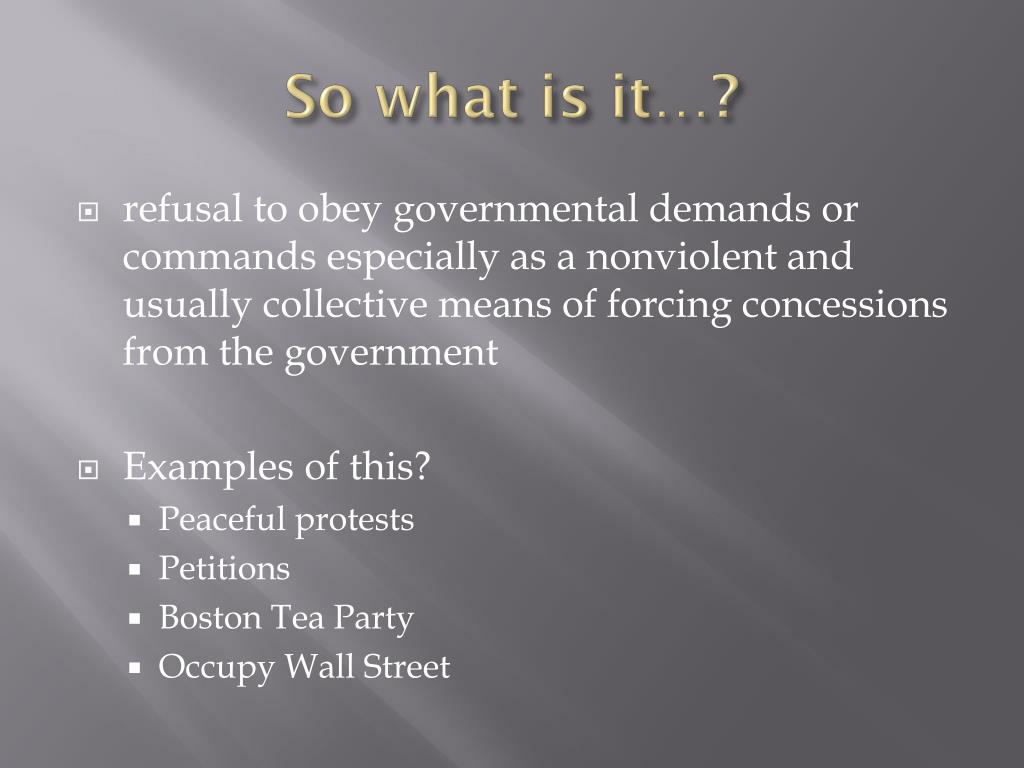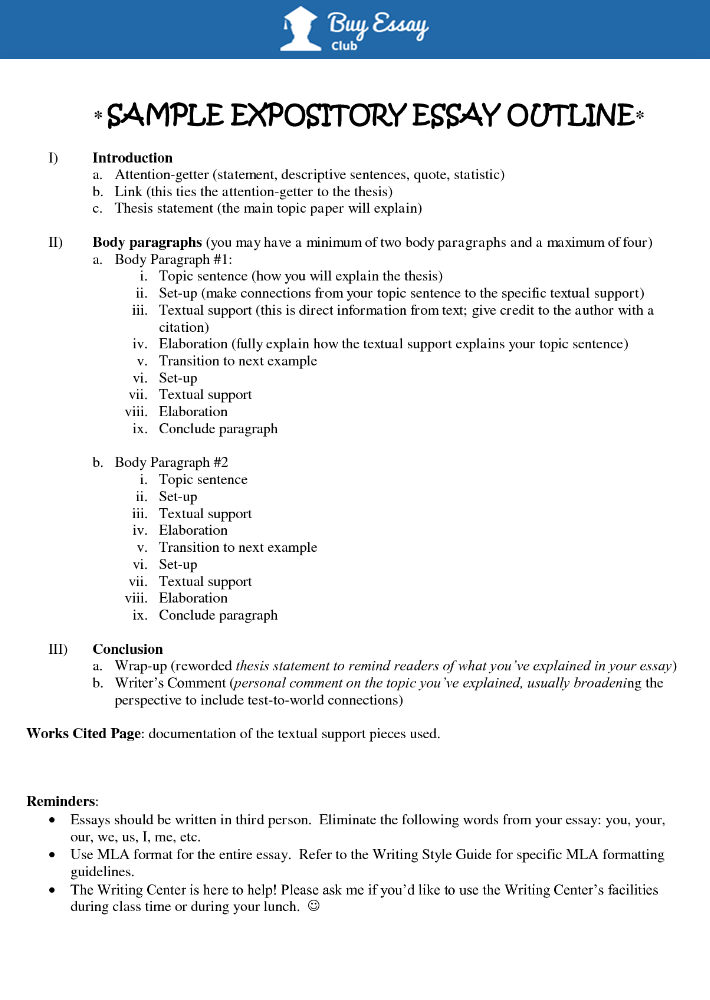
Civil Disobedience. A symbolic, non-violent violation of the law, done deliberately in protest against some form of perceived injustice. Mere dissent, protest, or disobedience of the law does not qualify. The act must be nonviolent, open and visible, illegal, performed for the moral purpose of protesting an injustice, and done with the expectation Civil disobedience refers to “nonviolent opposition to a government policy or law by refusing to comply with it.”. These famous civil rights leaders paved the way for modern examples of civil disobedience in the 21st century. People with placards and posters on global strike for climate change Definition of civil disobedience.: refusal to obey governmental demands or commands especially as a nonviolent and usually collective means of forcing concessions from the government
Civil Disobedience legal definition of Civil Disobedience
Participants expect to be arrested, and are frequently charged with crimes such as trespass, failure to disperse, or failure to obey an officer. Civil disobedience is generally understood to be nonviolent, although some have argued that violent acts can also be considered a form of civil disobedience.
The purpose of civil disobedience civil disobedience meaning to convey a political message, which is accomplished through increased media coverage of the issue.
Also, if the law broken is the civil disobedience meaning being protested, it sends the message to authority figures that people consider civil disobedience meaning law so unjust, they are willing to openly disobey it, civil disobedience meaning.
An example of this is Rosa Parks' refusal to give up her seat on a city bus to a white person, as was required by law in in Montgomery, Alabama. Another purpose can be the disruption of the organization being protested.
In the United Civil disobedience meaning, common types of civil disobedience include staging a sit-in at a government or corporate office, blocking traffic or doorways, or merely being in a location where the person is not allowed to be. Famous advocates of civil disobedience include Martin Luther KingMohandas Gandhi and Henry David Thoreau, civil disobedience meaning.
In Animal Rights. Within the animal rights movement, activists have staged peaceful sit-ins, civil disobedience meaning, chained themselves to barricades and trespassed in order to film undercover videos. While traditional protests are legal and protected by the First Amendmentdisruptive activities such as blocking doorways or driveways are illegal and are a form of civil disobedience. Also Known As: Nonviolent resistance. Examples: The protest will include an act of civil disobedience, and arrests are expected.
Share Flipboard Email. Issues Civil Liberties Gun Laws Equal Rights Freedoms The U. Government U, civil disobedience meaning. Foreign Policy U. Liberal Politics U. Doris Lin. Animal Rights Attorney. Doris Lin is an animal rights attorney and the director of legal affairs for the Animal Protection League of New Jersey.
our editorial process. Updated March 08, Cite this Article Format. Lin, Doris. What is Civil Disobedience? copy citation. Biography of the Rev. Martin Luther King Jr. How to Hold a Legal and Meaningful Protest. Civil Rights Movement Timeline From to to Be a Leader. The Greensboro Sit-In at Woolworth's Lunch Counter. Gandhi's Historic March to the Sea in Birmingham Campaign: History, Issues, and Legacy. What Is Anarchy? Definition and Examples.
The Civil Rights Act of Did Not End the Movement for Equality. The Civil Rights Act of History and Impact.
Limits of Civil Disobedience Movement - Nationalism in India - History - Class 10th
, time: 17:25Modern Examples of Civil Disobedience
civil disobedience definition: 1. the act by a group of people of refusing to obey laws or pay taxes, as a peaceful way of. Learn more. Cambridge Dictionary +Plus Definition of civil disobedience.: refusal to obey governmental demands or commands especially as a nonviolent and usually collective means of forcing concessions from the government Civil disobedience is a symbolic or ritualistic violation of the law rather than a rejection of the system as a whole. The civil disobedient, finding legitimate avenues of change blocked or nonexistent, feels obligated by a higher, extralegal principle to break some specific law

No comments:
Post a Comment